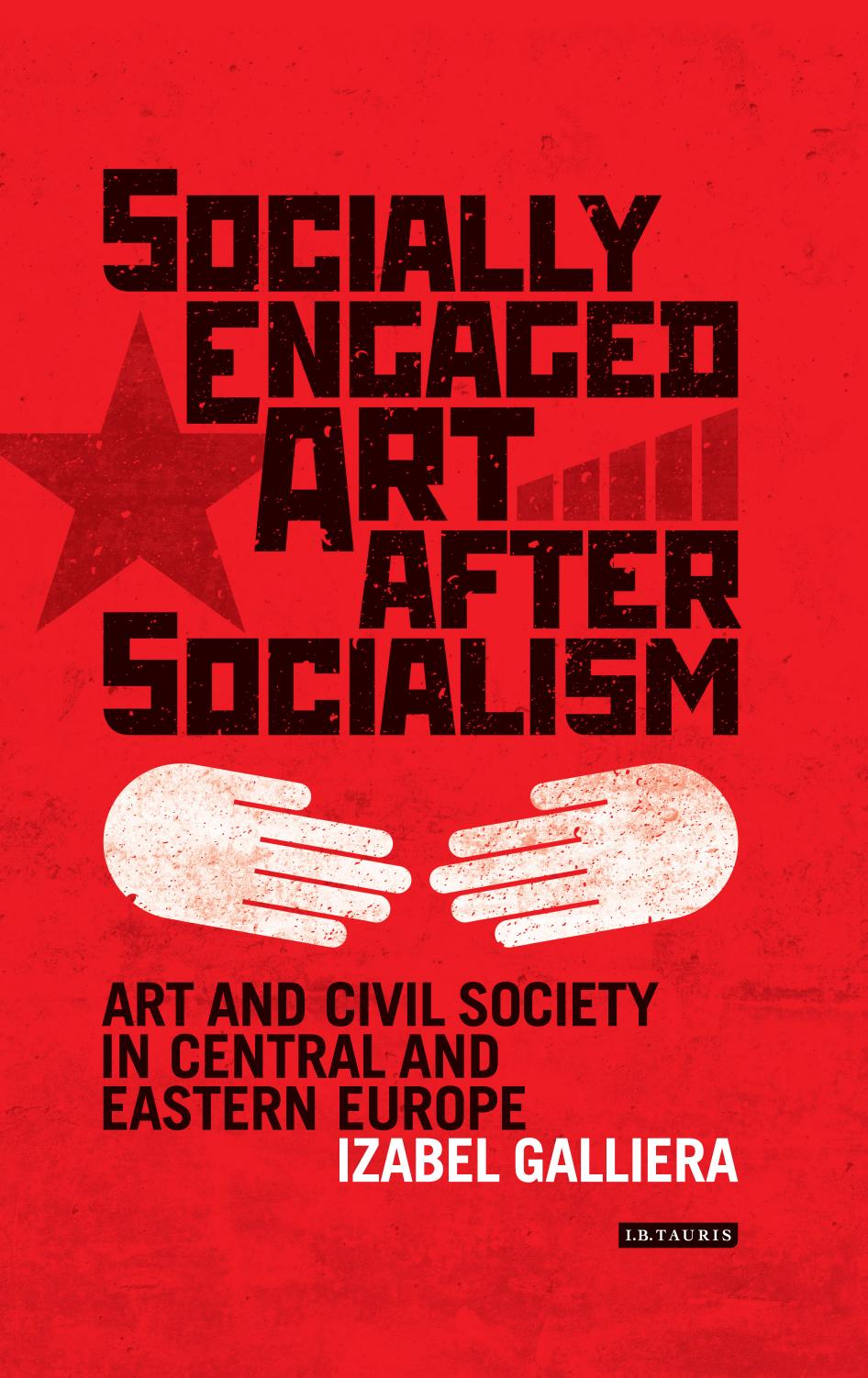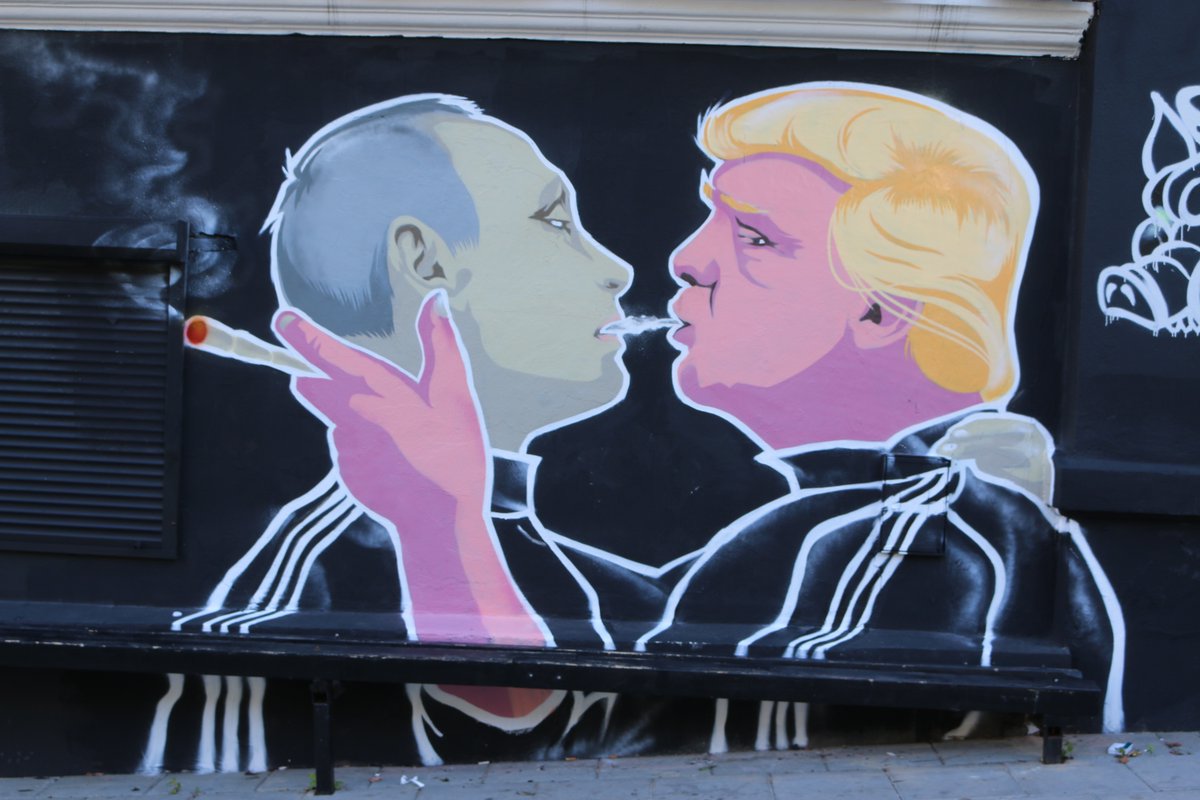Izabel Galliera: Socially Engaged Art After Socialism: Art and Civil Society in Central and Eastern Europe (2017)
Filed under book | Tags: · art history, bulgaria, civil society, communism, contemporary art, east-central europe, eastern europe, hungary, participation, politics, romania, southeastern europe

“Reclaiming public life from the ideologies of both communist regimes and neoliberalism, their projects have harnessed the politically subversive potential of social relations based on trust, reciprocity and solidarity. Drawing on archival material and exclusive interviews, in this book Izabel Galliera traces the development of socially engaged art from the early 1990s to the present in Bulgaria, Hungary and Romania. She demonstrates that, in the early 1990s, projects were primarily created for exhibitions organized and funded by the Soros Centers for Contemporary Art. In the early 2000s, prior to Bulgaria, Hungary and Romania entering into the European Union, EU institutions likewise funded socially-conscious public art in the region. Today, socially engaged art is characterised by the proliferation of independent and often self-funded artists’ initiatives in cities such as Sofia, Bucharest and Budapest.
Focusing on the relationships between art, social capital and civil society, Galliera employs sociological and political theories to reveal that, while social capital is generally considered a mechanism of exclusion in the West, in post-socialist contexts it has been leveraged by artists and curators as a vital means of communication and action.”
Publisher I.B. Tauris, London/New York, 2017
ISBN 9781784537135, 1784537136
xx+361 pages
Review: Denisa Tomkova (ARTMargins, 2018).
Comment (0)Cultural Anthropology: Lessons for Liberalism from the “Illiberal East” (2018)
Filed under journal | Tags: · anthropology, central europe, conspiracy, democracy, east-central europe, eastern europe, fake news, geopolitics, illiberalism, liberalism, politics, populism

“The cumulative effects of Brexit, the resurgence of populist politics in Europe, and the election of Donald Trump as president of the United States have given rise to the perception that Western liberal democracies are undergoing profound change, if not a bona fide crisis. Moreover, there is a sense that it is the political liberalism of the post–Cold War period—rather than its far less popular companion ideology of neoliberalism—that finds itself in disarray. As scholars and commentators rummage through their intellectual toolboxes for explanatory frameworks, many are turning to (post)socialist histories and experiences as heuristic devices for making sense of the upheavals in Western politics. In this Hot Spots series, we suggest that the postsocialist transition, as both discursive space and set of practices that attempted to make capitalists out of socialists and liberals out of totalitarians, renders the former socialist world a rich site for understanding the current shifts in the Western political landscape. We aim to make sense of this landscape in a way that is attuned to both long-term processes and to the state of emergency reinforced with each new wave of current events. Even though the ground appears to be constantly shifting beneath our feet, these essays insist that detailed, historically and geopolitically sensitive analysis of actually existing post–Cold War liberalisms is one key approach for making sense of the present.”
Edited by Dace Dzenovska and Larisa Kurtović
Publisher Society for Cultural Anthropology, Apr 2018
Hot Spots series
ISSN 1548-1360
Katalin Cseh-Varga, Adam Czirak (eds.): Performance Art in the Second Public Sphere: Event-based Art in Late Socialist Europe (2018)
Filed under book | Tags: · art history, censorship, communism, east-central europe, eastern europe, event, happening, mail art, nudity, performance, performance art, protest, public sphere, sexuality, socialism, southeastern europe, theatre, underground

“This is the first interdisciplinary analysis of performance art in East, Central and Southeast Europe under socialist rule. By investigating the specifics of event-based art forms in these regions, each chapter explores the particular, critical roles that this work assumed under censorial circumstances.
The artistic networks of Yugoslavia, Hungary, Latvia, Lithuania, Poland, Romania, East Germany and Czechoslovakia are discussed with a particular focus on the discourses that shaped artistic practice at the time, drawing on the methods of Performance Studies and Media Studies as well as more familiar reference points from art history and area studies.”
Publisher Routledge, New York & London, 2018
ISBN 9781138723276, 1138723274
xii+263 pages
Interview with editors (ARTMargins, 2014)
Comment (0)
